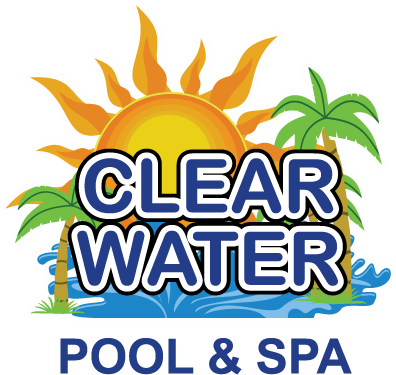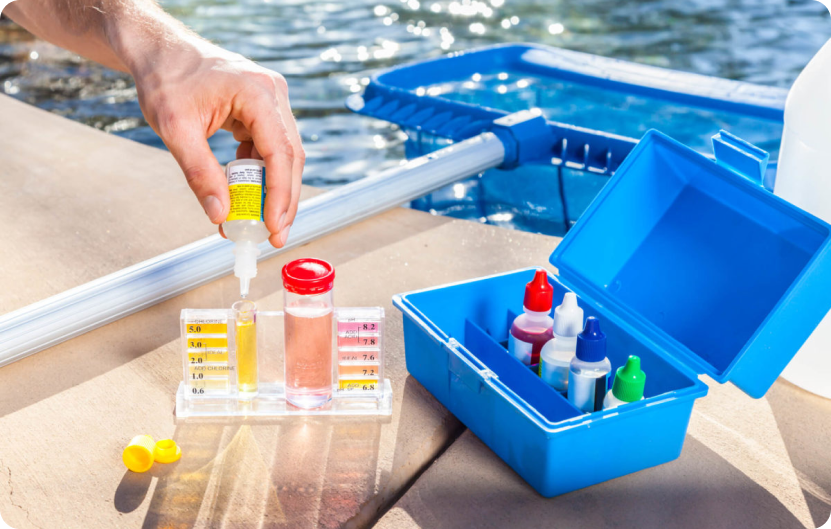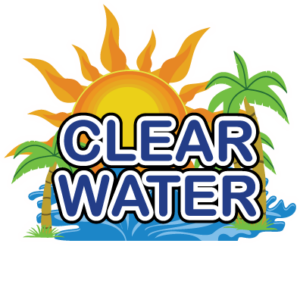Introduction:
Swimming pools are a delightful way to beat the heat and enjoy some leisure time, but it’s important to be mindful of the chemicals used to keep these pools clean and safe. Ideally sourced from a trusted pool chemical store, these chemicals are key in maintaining clear water, stopping algae growth, and protecting against harmful germs and bacteria. They also enhance the pool’s filtering system to work better.
However, it’s necessary to handle these chemicals carefully. Misuse or direct contact can be risky. Pool owners should be well-informed about the chemicals in their pools, their purpose, and the possible side effects of unsafe exposure.
This guide is designed to offer you this important information in an easy-to-understand yet professional manner, ensuring you can enjoy your pool while safely keeping it in top condition.
Types of Chemicals Used in the Pools
Understanding the three primary types of pool chemicals is crucial for maintaining a healthy and enjoyable swimming environment. Each chemical plays a specific role in ensuring the water is safe and pleasant for swimmers. Let’s delve deeper into the characteristics of these vital chemicals.
Chlorine
As the most popular pool sanitizer, chlorine effectively eliminates harmful bacteria and algae. It’s available in various forms, such as tablets, granules, and liquid. While highly efficient, chlorine can sometimes lead to skin and eye irritation, especially in higher concentrations. It’s also sensitive to sunlight, which can reduce its effectiveness. Using a stabilizer alongside chlorine can help protect it from UV rays, prolonging its sanitizing properties.
Bromine
Often used as an alternative to chlorine, bromine is particularly effective in hot water environments like spas and hot tubs. It’s less likely to cause skin and eye irritation and doesn’t produce a strong odor like chlorine. Bromine remains active longer, even after killing bacteria and algae, providing extended protection. However, it’s generally more expensive than chlorine and less effective in outdoor pools where sunlight can quickly degrade it.
pH Balancers
Maintaining the correct pH level (ideally between 7.2 and 7.8) is essential for pool water balance. If the pH is too low, the water becomes acidic, leading to pool equipment corrosion and skin and eye irritation. Conversely, a high pH can cause scaling on the pool surface and make chlorine less effective. Regular testing and adjustment of pH levels are necessary to ensure the water remains safe and comfortable for swimmers.
In addition to these chemicals for pools, it’s also important to consider other factors like water hardness and the presence of other minerals, which can affect both water quality and the effectiveness of these chemicals.
Potential Side Effects From Pool Chemicals
The potential side effects of pool chemicals are an important consideration for any pool owner. While these chemicals are essential for maintaining clean, sanitary, and safe water, their volatile nature means they must be handled with care and in right amount to avoid negative impacts on humans and animals alike.
Let’s explore the common side effects in more detail:
Irritated Eyes
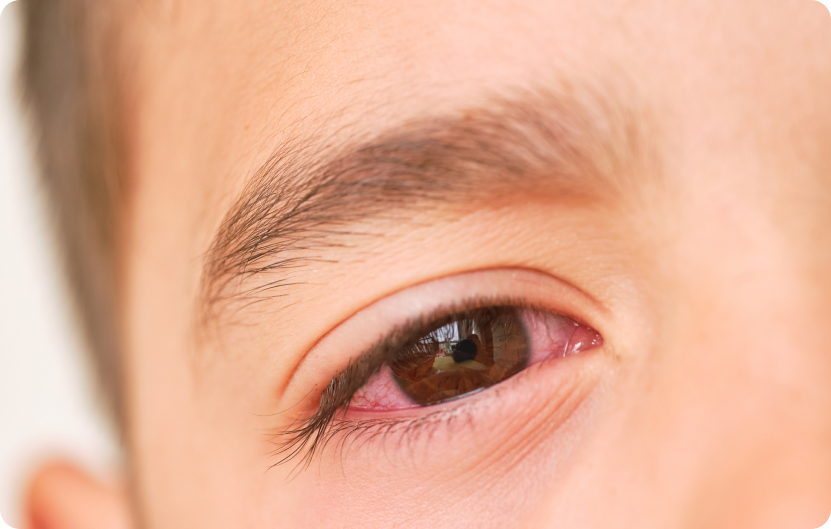 Chlorine and imbalanced pH levels can cause red, itchy, and irritated eyes. This is often a result of chlorine binding with bacteria and sweat, forming chloramines, which are particularly irritating.
Chlorine and imbalanced pH levels can cause red, itchy, and irritated eyes. This is often a result of chlorine binding with bacteria and sweat, forming chloramines, which are particularly irritating.
Lung Irritation
Inhaling fumes from pool chemicals, especially chlorine, can lead to respiratory issues. This is more common in indoor pools where ventilation may be limited, leading to the accumulation of chemical fumes.
Dry Skin, Hair, and Nails
Prolonged exposure to pool chemicals can strip away the natural oils in your skin, hair, and nails, leading to dryness and irritation. This effect can be more pronounced in pools with higher chlorine levels.
Chlorine Poisoning
High levels of chlorine can be toxic. Symptoms of chlorine poisoning include difficulty breathing, chest tightness, and coughing. In severe cases, it can lead to more serious respiratory problems.
Burns
Direct contact with undiluted pool chemicals, particularly chlorine and pH balancers, can cause chemical burns on the skin. These burns can range from mild irritation to severe chemical burns, depending on the concentration and duration of exposure.
It’s important to note that while chlorine is often the main culprit due to its widespread use and potent nature, other pool chemicals also carry risks if not used properly. Regular monitoring of chemical levels, proper storage and handling of chemicals, and following manufacturer guidelines are essential steps in minimizing these risks. Additionally, using quality chemicals from a reputable pool chemical store can also help in reducing the likelihood of adverse effects.
How to Prevent Side Effects From Pool Chemicals
Preventing the side effects of chlorine in pools is crucial for ensuring a safe and enjoyable swimming experience. Here are some effective strategies to mitigate the impact of chlorine:
Stay Out of the Water if It’s Not Safe
Always test the water’s chlorine levels before diving in. If the levels are too high, it’s safer to stay out of the pool until they normalize. Over-chlorinated water can be harmful and lead to the side effects mentioned earlier.
Rinse Off Before and After Swimming
Rinsing off before and after swimming plays a crucial role in your pool experience. By showering before you dive in, you can significantly reduce the sweat and natural oils on your skin. These substances, when mixed with chlorine, lead to the formation of chloramines, known for causing irritation. This pre-swim rinse is a simple yet effective way to minimize your exposure to these irritating byproducts.
Equally important is the practice of rinsing off immediately after your swim. This post-swim shower is essential in washing away any residual chlorine and other pool chemicals that might cling to your skin and hair. If not removed, chlorine can continue to dry out and irritate your skin, and might even leave behind an unpleasant odor. A thorough rinse, therefore, not only refreshes you but also plays a vital part in preventing the unwanted effects of chlorine exposure.
Wear Protective Gear
Consider wearing goggles to protect your eyes from chlorine irritation. For those with sensitive skin, wearing a swimming cap and a full-body swimsuit can also help minimize direct skin contact with chlorinated water.
Use Lubricating Eye Drops and Ear Drops
To prevent dryness and irritation, use lubricating eye drops before and after swimming. Similarly, ear drops can help prevent swimmer’s ear, a condition often exacerbated by prolonged exposure to pool water.
Moisturize After Swimming
Chlorine can strip moisture from your skin, hair, and nails. After swimming, thoroughly rinse off the pool water and apply a good moisturizer to your skin. Using a hydrating shampoo and conditioner can also help counteract the drying effects of chlorine on your hair.
Safeguard Your Pool with the Right Chemicals from Pool Chemical Store
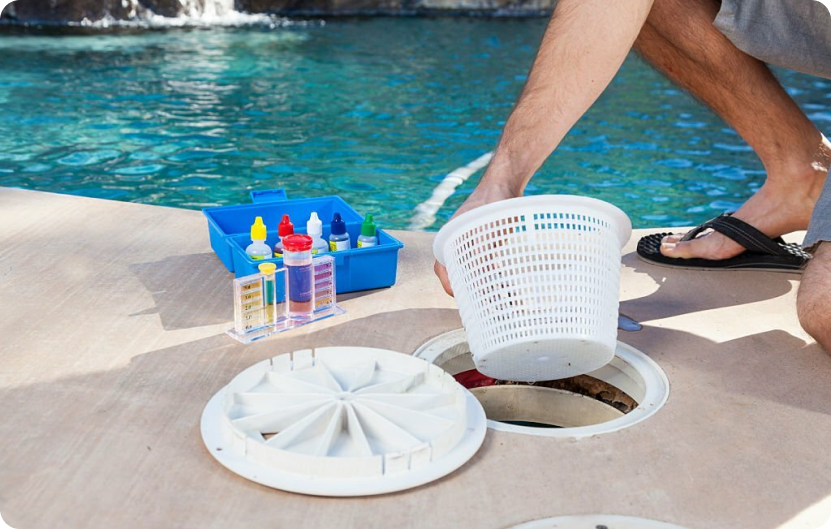 Gaining knowledge about different pool chemicals and understanding their potential side effects are essential steps in this process. By implementing best practices and choosing high-quality products from reputable sources, you can significantly enhance the safety and comfort of your pool.
Gaining knowledge about different pool chemicals and understanding their potential side effects are essential steps in this process. By implementing best practices and choosing high-quality products from reputable sources, you can significantly enhance the safety and comfort of your pool.
Clear Water Pool and Spa stands out as a premier destination for swimming pool chemicals in Corpus Christi. Our store offers more than just chemicals; we provide a wide range of pool equipment and accessories designed to make your pool time both enjoyable and safe.
Trust us to be your go-to source for all your pool needs, ensuring a clean, healthy, and fun swimming environment for everyone.
